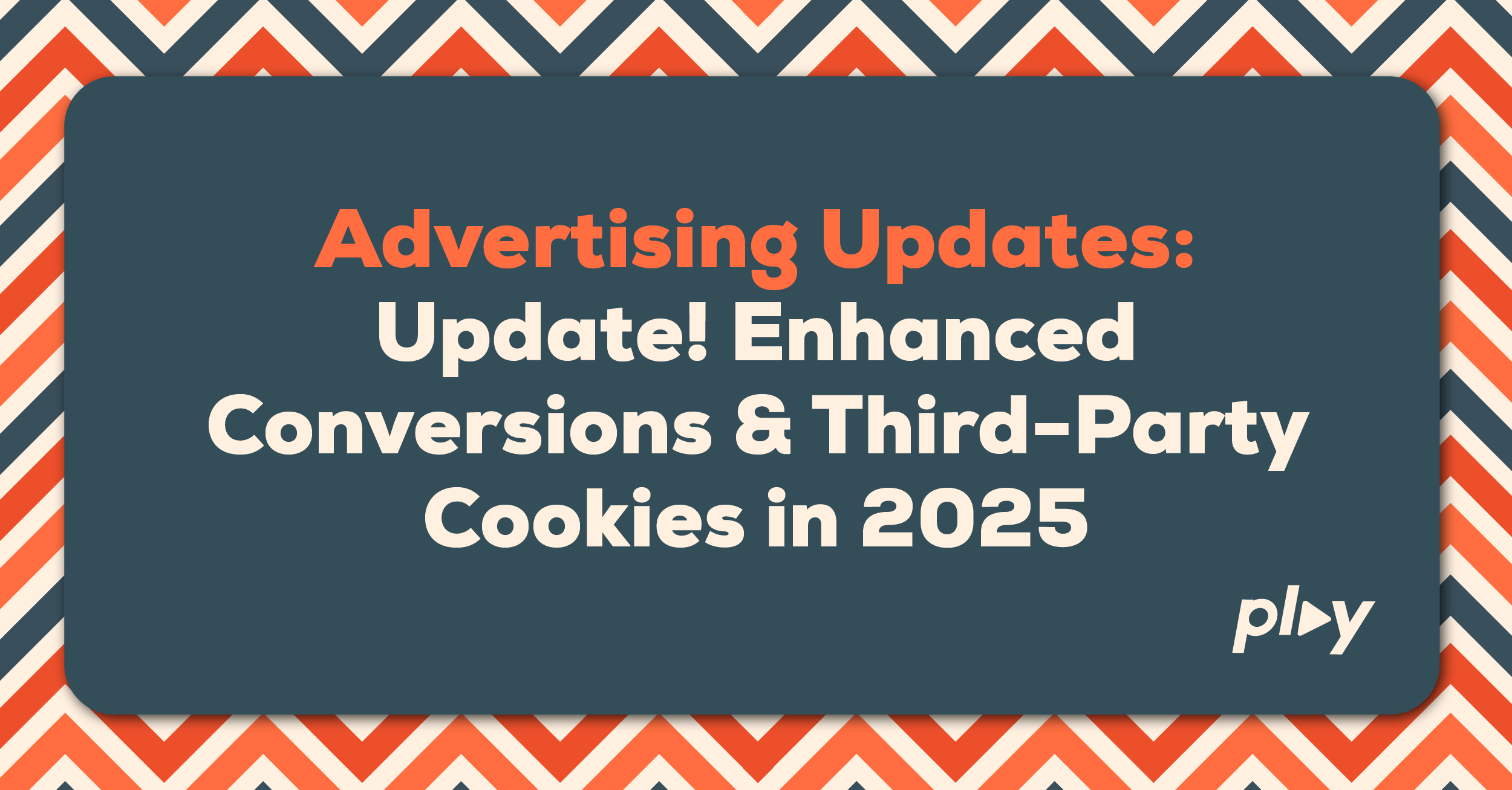Advertising Updates:
Third-Party Cookies Changes are Changing. Again!
Third-Party Cookies Changes are Changing. Again!

We have the latest info to keep you informed!
2024 marked some big changes regarding user data, which could affect how ad agencies set up and target your ads. But don’t worry—we have information and tips to keep you up-to-date into 2025 on the latest updates!
Recap: What are third-party cookies in relation to advertising?
Third-party cookies are small text files placed on a user’s computer by a website they are not currently visiting. These cookies can be used to track users across different websites and collect data about their browsing habits. This data can then be used to target ads to users based on their interests.
The latest
You may remember that Google Chrome is removing third-party cookies by Q4 of 2024. This is a significant change in the way that online advertising works, and it will have an impact on how Facebook Pixel tracks data. That has now been pushed into 2025!
According to Bidnamic, ”The removal of third-party cookies will make it harder for advertisers to track the web activity of potential consumers, which will have a considerable impact on things like remarketing.
How this relates to Meta ads and the Facebook Pixel
Facebook Pixel is a tool that businesses and ad agencies like ours use to track conversions and measure the effectiveness of Facebook ads. Pixel works by placing a third-party cookie on a user’s computer when they visit a business’s website. This cookie allows Facebook to track the user’s activity on the business’s website and on other websites that also use a Pixel.
When Google Chrome removes third-party cookies, it will make it more difficult for Facebook Pixel to track data. This means that businesses like yours may see a decrease in the accuracy of conversion tracking and in the effectiveness of Facebook ads.
The solution you need!
However, there is a solution to this problem. Facebook has developed a new tool called Facebook Conversions API (CAPI). CAPI is a server-side API that allows businesses to send conversion data directly to Facebook without having to rely on third-party cookies.
CAPI is more accurate and reliable than a Pixel, and it will not be affected by the removal of third-party cookies. We recommend that all businesses install CAPI to ensure that we can continue to track conversions and measure the effectiveness of our Facebook ads accurately after third-party cookies are removed.
Here are some of the benefits of installing Facebook CAPI:
- More accurate and reliable conversion tracking
- Better insights into the effectiveness of Facebook ads
- Reduced reliance on third-party cookies
- Improved data privacy for users
- Track conversions from Facebook ads to offline purchases
- Track conversions from Facebook ads to app installs
- Track conversions from Facebook ads to website sign-ups
- Track conversions from Facebook ads to video views
Google’s solution is called Enhanced Conversions: a game-changer for precision in conversion tracking and bidding optimization. This tool supplements your existing conversion tags by securely sending hashed first-party data, like email addresses, to Google, safeguarding user privacy. With Enhanced Conversions, you can track online and offline conversions effectively.
How it Works:
- For Web Conversions: Captures first-party customer data, hashes it, and matches it to signed-in Google accounts, optimizing online conversion tracking.
- For Lead Conversions: Utilizes hashed lead data from forms, enabling precise offline conversion tracking without the need for modifying lead forms or CRM systems.
Benefits:
- Recover Missed Conversions: Identify conversions that might have otherwise gone unnoticed.
- Refine Bidding Strategies: Enhance bidding optimization with accurate data.
- Privacy Assurance: Safeguards user data through secure hashing methods.
Setting Up Enhanced Conversions:
For Web:
- Google Tag Manager: Simple setup with minimal configuration changes.
- Google Tag: Make slight adjustments to your existing setup.
- Google Ads API: For advanced flexibility and control over data.
For Leads:
- Google Tag Manager or Google Tag: Easy integration with existing setups.
- Lead Form Ads: Seamless setup without modifying tagging.
- Google Ads API: Offers flexibility for data management.
Conclusion:
If there’s anything else you’d like to discuss when it comes to third-party cookies, advertising solutions, free trials, marketing audits, or any other questions you may have, reach out to us today! Our team of expert advertising strategists is here to help!
